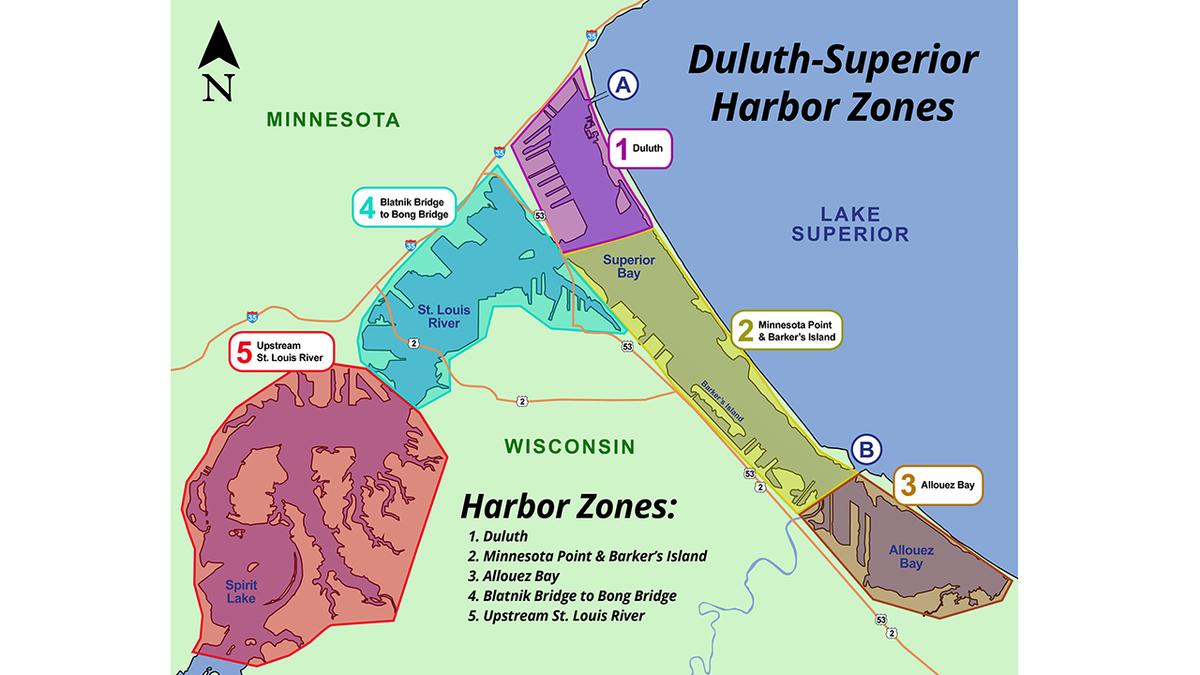The working harbors of Lake Superior offer recreational boaters an exciting contrast to region’s quiet backwaters. Watching the 20-60,000 ton lakers and salties with their cargo of taconite destined for steel mills or grain heading for foreign ports is exhilarating … from a safe distance.
These behemoths, some up to 1,000 feet in length (think three football fields), require a long distance to stop and can produce a wake large enough to capsize smaller watercraft that venture too close.
According to the U.S. Coast Guard, there were 701 recreational boating fatalities nationwide in 2016, a 11 percent increase over 2015. Eight out of every 10 boaters who drowned were using vessels less than 21 feet in length and the primary contributing factors in these accidents were operator inattention and inexperience.
To prevent dangerous and possibly deadly encounters, Minnesota Sea Grant is seeking survey input from boaters who use the Port of Duluth-Superior for recreational purposes - whether they have used the harbor only once, boat there occasionally or are frequent users.
“That we have not had a tragedy strike isn’t because we’ve been fully prepared, it might be because we’ve been lucky!” said Tom Beery, Minnesota Sea Grant resilience specialist, who is administering the survey. “We’ve been holding our breath; when it happens it’s going to be bad.”
The survey responses will be used to develop a recreational boater safety guide for the Port of Duluth-Superior and other Great Lakes working harbors. The survey is anonymous, closes Thursday, August 24, 2017 and should take only five to 10 minutes to complete. http://bit.ly/BoaterSurvey
“How do we find a place for outdoor recreation businesses, the shipping industry and everyday recreational boaters to safely and economically co-exist in this system?” said Beery. “No one wants kayaks paddling up to the hull of an ore boat.”
Many of the existing rules and regulations governing recreational boaters in working harbors – particularly within the commercial navigation channels – are complex and can be difficult to comprehend. The Twin Ports Harbor Technical Advisory Committee assembled a group to translate the U.S. Coast Guard harbor regulations into easier to understand language and asked Minnesota Sea Grant for help.
“Shipping and commercial businesses will benefit from an awareness and appreciation of the economic value outdoor tourism brings to the harbor,” said Beery. “And we have seen that recreational boaters appreciate the value of experiencing the harbor by the increase in their numbers each year.”
Minnesota has the highest number of recreational vessel registrations (817,560 in 2016) in the country and fewer than 2.5 deaths per 100,000 registered recreational vessels according to the USGC’s 2016 Recreational Boating Statistics.
“We view this survey and the resulting guide as a preventative measure,” said Beery. “A resilient harbor is one that is looking at potential change and is ready to adapt. Lake Superior and the whole estuary is an amazing ecological system. Shipping and recreation are but two examples of human participation in this ecological system.”
ADDITIONAL INFORMATION
Minnesota Sea Grant’s mission is to facilitate interaction among the public and scientists to enhance communities, the environment and economies along Lake Superior and Minnesota's inland waters by identifying information needs, fostering research and communicating results. We convey the needs of communities, industries and management agencies to scientists and promote the best and most current science regarding Lake Superior and inland lakes to resource users, managers and policy-makers.
Harbor Technical Advisory Committee is a working group that addresses challenges and opportunities in the Duluth-Superior harbor, while promoting the port’s economic and environmental importance to both communities. It is the only stakeholder group of its kind in the country.
U.S. Coast Guard 2016 Recreational Boating Statistics
